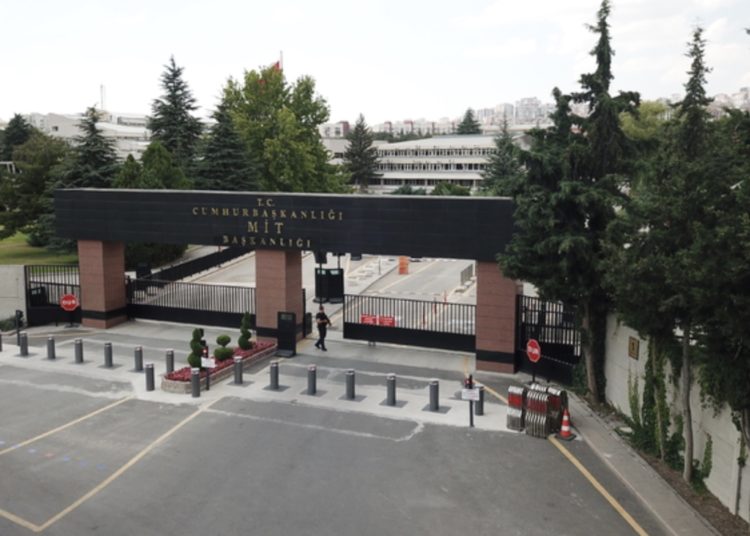Abdullah Bozkurt/Stockholm
The assassin of Necip Hablemitoğlu, an academic who was killed on December 18, 2002 in front of his apartment building in Ankara, was rewarded by both the Turkish military and Turkish intelligence agency MIT for the hit, a cache of official documents obtained by Nordic Monitor has revealed.
Former military officer Ahmet Tarkan Mumcuoğlu (54) gunned down Hablemitoğlu under orders from his commanding officer when he was working as the counterintelligence officer in the intelligence section of the Combat Search and Rescue (MAK), an elite force attached to the Special Forces Command (ÖKK) in Ankara. Mumcuoğlu was a secret contact of the academic and was feeding him information and passing classified documents to him, some of which turned out to be fabricated, as part of a clandestine psychological warfare operation.
Based on the documents and information he received, Hablemitoğlu was writing articles and books, making speeches and providing commentary to support the operation sanctioned by the renegade neo-nationalist (ulusalcı) military commanders who wielded influence on the National Security Council (MGK), a top consultative body that was described as a shadow government. His writings were strongly anti-Western and anti-Semitic, with a special focus on German foundations that were accused of operating with malicious intent to harm Turkey.
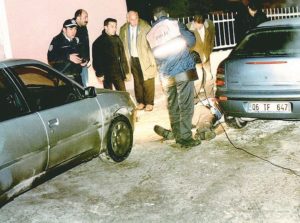
However, in time, Hablemitoğlu had quietly shifted his alliances and started getting close to the Justice and Development Party (AKP), then the main foe of the neo-nationalists. He was secretly passing confidential documents and information that were given to him by military people such as Col. Hasan Atilla Uğur and the MGK secretary, retired Gen. Tunçer Kılınç, both of whom were opposed to Turkey’s membership in the European Union and doing everything to block the AKP from participating in the elections.
Hablemitoğlu’s wife confirmed in a statement that her husband was receiving documents in a yellow envelope from Uğur, who was indicted in 2007 and later convicted on charges that he had illegally wiretapped the phone conversations of high-level bureaucrats as well as the prime minister and other members of the government while serving at the Gendarmerie General Command. Kılınç was also indicted and convicted. Both were released after pledging allegiance to then prime minister and current president Recep Tayyip Erdoğan, who formed an alliance with the neo-nationalists in 2014.
Hablemitoğlu’s revelation that the neo-nationalists who wielded influence over the judiciary were plotting to orchestrate a bogus closure case against the AKP appears to have been his death warrant. Furious neo-nationalists who had used Hablemitoğlu for psychological warfare under the cover of journalism felt betrayed and decided to sanction the hit on his life. The murder contract was handed to the MAK unit, which was commanded at the time by Mustafa Levent Göktaş, a neo-nationalist colonel who was brought in to run the unit by similarly minded generals.
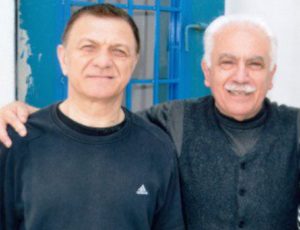
Mumcuoğlu killed Hablemitoğlu, who had just returned from evening shopping and was parking his car near his home when he was confronted by the killer. There were no signs of a struggle, indicating that the academic was comfortable encountering the killer. Two shots to the head, one in his left eye at close range, a signature killing that was meant for the punishment of a snitch, led to the academic’s demise right next to his car. The second shot was fired after he fell to the ground. Forensic teams collected two casings at the scene, one a Turkish MKE brand and the other a 9 mm Luger.
In an indictment filed at an Ankara court on November 11, 2022, public prosecutor Zafer Ergün noted that the German Luger casing was deliberately planted to derail the probe and create the perception that the German government was behind the murder. For years, this theory was circulated because of Hablemitoğlu’s anti-German publications, speeches and commentaries, leaving the real killer unknown.
The murder remained unsolved for decades until a whistleblower, an accomplice to the murder, came forward and named Mumcuoğlu as the killer in 2014. Even then, the government of President Erdoğan did not make any attempt to reopen the case, mainly because revelation of the identities and associates of the killer and masterminds would not sit well with his neo-nationalist allies, and Erdoğan did not want to risk a rupture in this newly forged relationship. He needed the neo-nationalists to run the country and fill vacant positions left by a mass purge of civil servants in the judiciary, police and intelligence agency as well as members of the military.
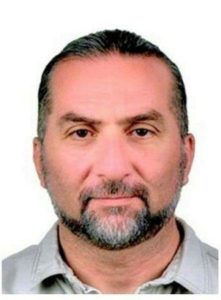
Erdoğan, incriminated in multiple cases, from corruption in his administration to the aiding and abetting of armed jihadist groups between 2013 and 2014, enlisted his former foes in the neo-nationalist bloc as his new partners and secured the release of their convicted members from prison. At the same time, he also launched an unprecedented purge of government employees, mostly pro-Western and pro-NATO figures from the judiciary, police and intelligence agency, as well as members of the military. The Gülen movement, a group critical of the Erdoğan government, bore the brunt of this purge and crackdown, which is still ongoing today.
In the meantime, the killer faced no problems in his military career and in fact was rewarded and promoted, despite the fact that many in the Special Operations Command (ÖKK) knew what he had done. Mumcuoğlu, who first signed up for ÖKK in August or September 2002, had continued working in the military since the murder, served in special operations and had various assignments in Azerbaijan (advisor to the Special Forces) in 2004-2005 and in Cyprus in 2008 until he retired with the rank of colonel in November 2012. With special recommendations from then-ÖKK commander Lt. Gen. Zekai Aksakallı in 2016, he was hired by Turkish intelligence agency MIT, despite the fact that the agency’s case file said he was Hablemitoğlu’s assassin.
Aksakallı called in a favor with his friend Kemal Eskintan, head of the special operations department at the spy agency, and Mumcuoğlu started working under Eskintan, whose portfolio included aiding and arming jihadist groups in Syria and Libya. Mumcuoğlu mainly worked in Turkish provinces on the border with Syria, transporting jihadists including al-Qaeda and Islamic State in Iraq and Syria (ISIS) terrorists on behalf of MIT and conducting clandestine operations. He voluntarily retired from the agency in 2021.
Phone records of Tarkan Mumcuoğlu show he was in Turkey at the time of the murder and that he illegally went to Ankara from Kazakhstan via northern Cyprus in a military cargo plane:
Mumcuoğlu’s luck in getting away with the murder ended when the alliance between Erdoğan and the neo-nationalists started showing signs of stress in 2018. The cold case suddenly became leverage for Erdoğan and his close confidant, Hakan Fidan, the head of MIT, who started sharing crucial evidence that had been withheld from prosecutors for decades. The Communications Agency (Telekomünikasyon İletişim Başkanlığı, TIB) sent complete phone records and cell phone signals from all over Turkey that were recorded in the six months before and six months after the murder to track the assassin and his accomplices. Supported by key witness testimony and a confession by an accomplice in the murder, the newly assigned prosecutor built a case against Mumcuoğlu.
Although the Erdoğan government did not go all the way in exposing the masterminds of the murder and even threw unsuspecting people who had nothing to do with the crime into the mix to muddy the water, the limited information in this renewed probe was enough to shed light on what really happened behind the scenes, secret machinations in the Turkish capital and who had ordered the hit on the academic and why.
Former major Nuri Gökhan Bozkır’s statement on Necip Hablemitoğlu’s murder:
Some of the key information on the murder was obtained from the testimony of former major Nuri Gökhan Bozkır, who had worked with the killer in the MAK unit at the time. Bozkır, who was extradited from Ukraine in January 2022, gave a statement to the police and later repeated the same statement in a deposition to the public prosecutor and to the judge at his arraignment. He identified Mumcuoğlu as the killer and named Mustafa Levent Göktaş, then a colonel and the head of MAK, as the man who ordered the hit.
According to Bozkır’s statement, Göktaş called him in November 2002 to tell him that Hablemitoğlu was a target and ordered him to run surveillance of Portakal Çiçeği Street, where the academic and his family lived, and write a detailed report about the neighborhood to help the hit team plan the murder.
Bozkır bought a cart used by scrap dealers to collect junk so he could investigate the neighborhood without attracting any attention. Scrap dealing is a common business activity of street vendors, who collect items made from copper, steel and other valuable materials and later turn them into profits by selling them to junkyards. Bozkır noted the location of security cameras, streetlights and foot and vehicle traffic on the main and side roads around the apartment on Portakal Çiçeği Street.
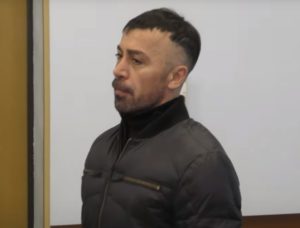
The MAK unit also sent others to scout the area and follow Hablemitoğlu to nail down his daily routine. For example Bülent Kutsal, another military member, was one of the officers assigned to monitor Hablemitoğlu on a daily basis. According to the documents, the unit entertained various options to kill the academic. One was to plant an explosive on his car and kill him in a blast. When they discovered that for security reasons Hablemitoğlu was remotely starting his car before getting into it, that option was discarded.
In December 2002 Bozkır was ordered by Göktaş to arrange transportation for Mumcuoğlu to and from Portakal Çiçeği Street. His job also included providing a getaway car for the assassin. He also planned a contingency and arranged another driver, Sgt. Haci Arabaci, and a second car for the operation. All who were involved in the plot were provided with burner phones.
On December 18, Bozkır got a call at night on his burner from Mumcuoğlu, who asked him to pick him up and drive him to Portakal Çiçeği Street. Mumcuoğlu exited the car and got a final confirmation for the kill from Göktaş on the phone. Bozkır said he waited some five or 10 minutes in the car before he heard two gunshots and picked up the assassin. He dropped Mumcuoğlu at his house and returned to the MAK unit.
Bozkır said he talked about the murder for the first time in 2014 with a prosecutor in Istanbul but was threatened by Göktaş, who told him to keep silent and stay in Ukraine, where he was living before the Ukrainian authorities detained him and handed him over to Turkey. The prosecutor did not do anything with the information he received from Bozkır.
In 2002 Mumcuoğlu was working as deputy intelligence chief in the MAK unit under Fikret Emek, also a suspect and indicted in the renewed investigation. At the time of the murder, he was officially assigned to work in Kazakhstan but illegally went to Turkey using Turkish Cyprus as a transfer point to continue on in a military cargo plane. He had no official entry or exit records at the border because he took one of the special military cargo planes that flew between Ercan Airport, used by the Turkish military in northern Cyprus, and Ankara’s Etimesgut military airport. However, cell and pay phone records for calls to Mumcuoğlu’s wife and father made clear that he was in Turkey at the time of the murder.
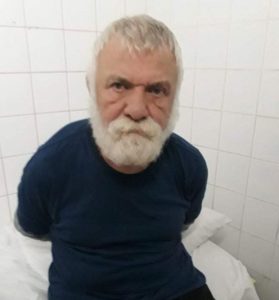
After the Syrian civil war started in 2011, in coordination with Turkish intelligence agency MIT, Bozkır was running illegal arms to jihadist groups in Syria in line with the Erdoğan government’s policy to mobilize all who could take up arms to oust Bashar al-Assad from power. This assignment went on until he became a suspect in a 2015 criminal investigation into the Islamic State in Iraq and Syria (ISIS), when police found explosives hidden behind sacks of onions in a trailer operated by Bozkır and his accomplices. Under orders from MIT, he was advised by Göktaş to flee the country to escape charges and remain in Ukraine until further notice. He flew to Ukraine on September 12, 2015.
Bozkır said he became acquainted with Mumcuoğlu after he returned from a mission in Bosnia in 2001 and that the two got close as they were taking the same service bus to the military base every morning. In his conversations with Bozkır, Mumcuoğlu revealed that he had been in contact with Hablemitoğlu and shared some classified documents with him. He also told Bozkır that he was working closely with Soner Yalçın, an indicted neo-nationalist writer who was used by a faction in the military to feed information in order to shape public opinion on some issues.
Mumcuoğlu and Yalçın worked together on the popular ultranationalist TV series “Valley of the Wolves” (Kurtlar Vadisi), which featured an undercover Turkish agent who became a mafia leader fighting evil characters. Violence, torture and killings were depicted in various episodes. The script was full of anti-Christian and anti-Semitic themes and revolved around plots aimed at fanning xenophobia in Turkey. Yalçın wrote the script in consultation with Mumcuoğlu, the murderer of the academic.
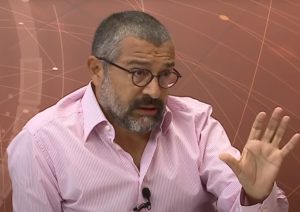
Many documents, including some that were apparently fabricated, about activities allegedly conducted by German foundations in Turkey, were passed to Hablemitoğlu by Mumcuoğlu under orders from his superiors in the Turkish military. Bozkır said Mumcuoğlu even tasked him with intelligence work on the activities of the Konrad Adenauer Foundation.
A review of articles by Hablemitoğlu portrays him as a viciously anti-Western and anti-Semitic figure who routinely accused his critics of being agents of Mossad, the CIA and the European intelligence services. The conspiracies he amplified in his writings continued even after his murder, and allegations were made that a Mossad agent had murdered the academic. The allegations were never proven but were kept alive in neo-nationalist circles.
Mumcuoğlu was detained in Ankara on June 8, 2022, 20 years after he committed the murder. In his statement he denied having any role in the murder and claimed he was assigned for training in Kazakhstan between November 17, 2002 and May 16, 2003. He said he never knew or met Hablemitoglu and claimed he had not even heard his name until 2017, which was quite bizarre given the fact the murder was all over the press. What is more, Hablemitoğlu’s wife, Sengül Hablemitoğlu, identified him as an officer who met with her husband some time in the fall of 2002.
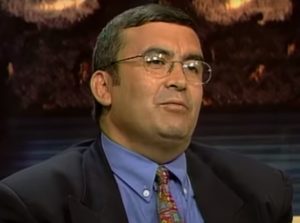
Although the Erdoğan government has no interest in pursuing the evidence but rather wants to use it as a sword of Damocles over its neo-nationalist partners who sanctioned the murder, the renewed probe nevertheless has helped observers of Turkish politics understand how deep elements nested in Turkey’s strategic institutions manipulated the domestic agenda for their own purposes .
According to Mehmet Eymür, a retired MIT official who served in senior positions in the agency’s special bureau and counterterrorism and operations departments for many years, Hablemitoğlu was in fact an asset employed by the military-dominated MGK Secretariat. He was working under the MGK’s Presidency of Public Relations (Toplumla İlişkiler Başkanlığı, or TİB) in driving talking points and the narrative in Turkey’s agenda. His handler was Doğu Perinçek, a leading neo-nationalist politician who was convicted in Turkey but was later set free with the Erdoğan government’s help and is now a staunch supporter of the Erdoğan regime.
A conspiracy that Germany was trying to thwart Turkey’s development by mobilizing environmental groups to prevent gold mining in Bergama forestland and using German foundations as fronts to make this happen was developed by the MGK. In fact, Hablemitoğlu’s book titled “Alman Vakıfları ve Bergama Dosyası” (German Foundations and the Bergama Case) was written based on documents, some apparently fabricated, given to him by people working for the MGK Secretariat.
As part of the plan to fan this conspiracy, powerful military generals and their civilian associates picked up on this debate at the time to deliberately fuel rumors of ill-intentioned German foundations. Nuh Mete Yüksel, a neo-nationalist prosecutor at the Chief Prosecutor’s Office for the State Security Courts in Ankara, even filed an espionage indictment against German foundations and some German nationals who were residing in Turkey. The key evidence in the case was a document whose content was revealed to the public by Hablemitoğlu. The document was allegedly provided to Turkish authorities by a professor named Metin Deliormanlı, supposedly living in Sweden.
However, it turned out that the document was totally fabricated. Moreover, there was no such person in Sweden or in all of Europe, for that matter. Asked to comment on his source for the document, Hablemitoğlu said he would reveal the source in court. However, he was murdered eight days before the first hearing, scheduled for December 26, 2002. The case eventually ended in the acquittal of all German suspects, and the so-called document never surfaced.
The renewed investigation into Hablemitoğlu’s murder uncovered a previously unknown aspect of the academic’s secret life which may very well explain why he was assassinated by the neo-nationalist group. Two witnesses came forward to confirm that Hablemitoğlu became a mole for Erdoğan, betraying his masters in the neo-nationalist bloc. One witness was Halil Şıvgın, a former health minister and prominent politician who helped Erdoğan when he established the AKP in 2001. The other was Ramazan Toprak, a lawyer who served as a military prosecutor and judge and an Islamist politician who was one of the founding members of the AKP. The two forged a close friendship with Hablemitoğlu in secrecy.
Deposition of former minister Halil Şıvgın on Necip Hablemitoğlu’s secret meetings:
According to a statement to the prosecutor on November 11, 2016 by Şıvgın, Hablemitoğlu reached out to him through Toprak. During the meeting that was held some time in April or May 2002, Hablemitoğlu told the minister that his work for the campaign to slander German foundations and the Gülen movement were in fact secret assignments given to him by the military.
He also revealed that a closure case was planned to be launched against the AKP before the newly established party entered the November 2002 elections and that he was personally involved in developing the case. According to Şıvgın, the reason for his revelations was the academic’s desire to enter politics, and he was lobbying Toprak, one of the founders of the AKP, to get on the AKP ticket. “I told him that if he arranged a meeting with Abdullah Gül with the help of Ramazan Toprak, he would certainly become a candidate for a seat in parliament,” the minister said in his deposition at the prosecutor’s office.
Hablemitoğlu’s pivot to the AKP was not surprising given his checkered past. Although he was known for his leftist, neo-nationalist (Ulusalcılık) views, his roots were more in the nationalist/center-right parties. In the late 1970s, he even worked as press advisor for the center-right Adalet (Justice) Party and interacted with the Gray Wolves group. His father was a religious person and a hafiz, a title used by Muslims for someone who has memorized the Quran. Therefore, his secret interactions with Toprak, who also came from the religious Fazilet Party, the former party of President Erdoğan, was not a stretch.
Deposition of Ramazan Toprak, former chairman of parliamentary Defense Committee, on Necip Hablemitoğlu’s secret meetings:
Hablemitoğlu had at least three followup lunch meetings with Toprak and Şıvgın, one at the academic’s own house and another at Toprak’s house. Their spouses also attended the lunches. A meeting with Gül, an Islamist politician who later became prime minister and then president, was arranged by Toprak at his house on July 19, 2002, to bring Hablemitoğlu and Gül together for the first time. Şıvgın was also invited. At the meeting Hablemitoğlu revealed some information he had received from Gül’s private talks with Alan Makovsky and Henry Barkey, Turkey experts at The Washington Institute in the US.
“In the meeting, when Hablemitoğlu said, ‘I follow your activities closely, and you said during a lobbying meeting in America that it will be the US that will bring us to power and that we will do whatever America wants,’ Gül was taken aback and replied, ‘I never said such things’,” Şıvgın recounted. Gül was apparently rattled by the information that had been obtained by the academic about his contacts in Washington, D.C.
Toprak’s deposition in the prosecutor’s office also confirmed what Şıvgın said and how Hablemitoğlu was privately sending positive signals to the AKP while he was publicly criticizing it. According to Toprak’s statement to the prosecutor on October 20, 2016, the first contact with the academic was made by Toprak by phone on January 15, 2002. Hablemitoğlu was quite receptive and told Toprak that his father was a pious man and a fan of Toprak. In his discussions Hablemitoğlu said he was not happy with his neo-nationalist buddies and was feeling the burden of defamation lawsuits filed against him over slanderous articles and comments.
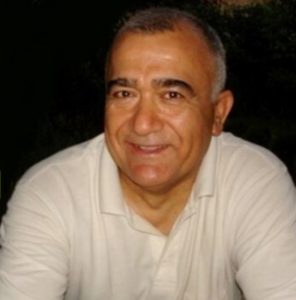
The friendship between the two developed quickly. According to Toprak, Hablemitoğlu made clear that he wanted to work for the AKP and was expecting a nomination in the upcoming election. He even set his eyes on becoming the new chief of MIT in the Erdoğan government. At a dinner meeting on July 10, 2002 in a secluded restaurant near Mogan Lake in Ankara, Hablemitoğlu revealed that a closure case against the AKP was being prepared and that it would be based on a book to be written by Ergün Poyraz, an operative who used journalism as a cover to push an agenda on behalf of military intelligence.
Poyraz was arrested in 2007 in connection with the Association for the Union of Patriotic Forces (VKGB), a crime gang whose members included retired army officers. The investigation found that he was actually on the payroll of the Gendarmerie Intelligence and Counterterrorism Service (JITEM), a clandestine organization that is believed to have been behind many bombings, attacks and assassinations in the 1990s. The payroll documents exposing Poyraz as an operative were published by the Taraf daily in March 2008. Under orders, Poyraz wrote several controversial books such as “Musa’nın Çocukları” (The Children of Moses), which features allegations that Erdoğan rose to power thanks to a “Zionist conspiracy.”
Hablemitoğlu’s assignment was to work with Poyraz on a new book and publish it before the elections in 2002. At the same time, he would also run psychological warfare around the closure case and help shape the public debate against the party. At his private dinner with Toprak and the former minister, Hablemitoğlu admitted that he was wrong and would try to postpone the publication of the book until after the elections, which he did.
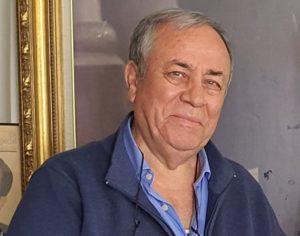
Poyraz’s book on the AKP was belatedly published after the elections under the title “Patlak Ampul” (Blowout Bulb), a reference to the AKP party banner, which features a lighted bulb. In March 2008 neo-nationalists led by Mehmet İlker Başbuğ, the then-commander of the Land Forces and incoming chief of General Staff, finally managed to orchestrate a closure case against the AKP. Supreme Court of Appeals Chief Prosecutor Abdurrahman Yalçinkaya, an ally of the neo-nationalists, cited this book as key evidence to support the closure case for the AKP and a ban on 71 former and current high-level party officials including Erdoğan and Gül.
In other words, what Hablemitoğlu said in confidence was confirmed years later. He also told participants in the meeting that AKP headquarters were wiretapped and that they needed to be careful when talking on the phone. After the dinner Toprak called AKP chairman Erdoğan and asked for an emergency meeting. He shared with Erdoğan what Hablemitoğlu told him during the dinner. As a followup, a meeting of four – Erdoğan, Toprak, Hablemitoğlu and Şıvgın – was planned to discuss the matter further at Toprak’s house and talk about possible measures to prevent the launch of the closure case. Because of a scheduling conflict, Erdoğan could not attend but sent his deputy, Gül, in his place.
It appears the neo-nationalist group that had been working with Hablemitoğlu found out that he was secretly cooperating with the AKP, their arch-enemy at the time, that he undermined the planned closure case and delayed the publication of a book that would have been a tool for building a case against the AKP. His punishment for this was his murder. Fearing that both Toprak and Şıvgın might be the next targets, then-prime minister Gül urged police protection for both of them.
Toprak later became chairman of the Defense Committee in parliament but was forced to resign after generals at the MGK put pressure on Gül. According to Toprak’s statement in the case file, in February 2003 a man whom he did not know came and told him about his secret meetings with Hablemitoğlu and said Toprak would be planned to be killed as well but the plans were dropped after Toprak was elected to serve in parliament. The man said he was sent to convey this message but did not elaborate further.
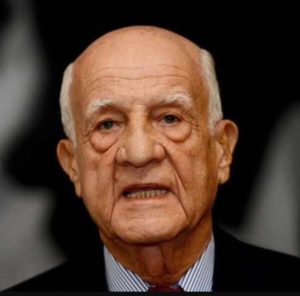
The renewed investigation into the murder put a spotlight on İnan Kıraç, dubbed the “Lord of Darkness” in organized crime circles, because Göktaş, the indicted MAK commander who ordered the killing, had been working closely with the billionaire businessman, who has wielded influence in politics, the military and the intelligence apparatus from the shadows for decades. Although he faced an arrest warrant that was issued on June 8, 2022, Göktaş was meeting with Kıraç in the billionaire’s office while still a fugitive. Reportedly on the advice of Kıraç, he fled to Bulgaria but was detained on September 2, 2022 in the town of Svilengrad.
The case appears to have turned into a chess game between President Erdoğan and Kıraç, who was implicated not only in Hablemitoğlu’s murder but in a series of unsolved murders in the 1990s. Despite efforts by the billionaire, Erdoğan managed to convince Bulgarian authorities to hand over fugitive Göktaş to Turkey, which happened in late December 2022.
Adem Yavuz Aslan and Cevheri Guven, two Turkish investigative journalists who are closely following the case, say that Erdoğan and the neo-nationalists struck a new bargain ahead of elections this year in Turkey. That explains why the trail went cold in the new indictment, and Kıraç’s name as well as the names of some neo-nationalist generals who sanctioned the murder were left out as part of this bargain. The billionaire’s name may come up again in court proceedings, and an additional indictment may be filed against Kıraç in Hablemitoğlu’s murder if the secret deal between Erdoğan and the neo-nationalists is shattered.

